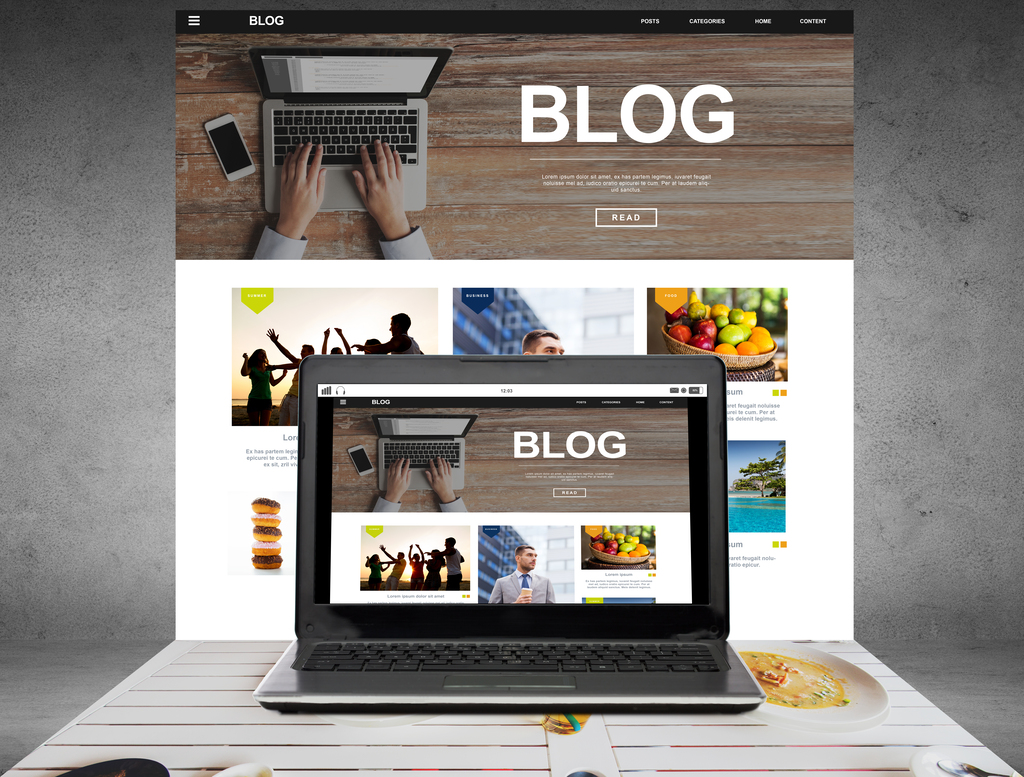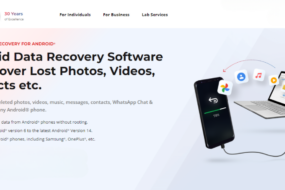If you’re wondering, “Why should I use WordPress?” then you’re in the right spot. Thinking about this means you’ve already looked into WordPress or heard about it from someone you know. But that doesn’t mean you’ve fully explored its advantages or looked into all its features. So, let’s simplify things and talk about why to use WordPress for blogging website. It’s utterly adaptable and can handle almost anything you throw at it!
Why Use WordPress?
Average blog owners might find names like WordPress, Shopify, Joomla, Wix, Magento, and Weebly pretty unfamiliar. But when you’re getting into building a website, these names suddenly become important because they’re all platforms used for creating websites. Each one has its own strengths, and some are used more for specific types of websites.
For example, if you’re running an online store, Shopify is a good fit, but it’s not ideal if you’re starting with a blog and later want to add eCommerce. Magento falls into the same category. Other platforms offer more flexibility, and that’s often why they’re more popular.
Tools like Squarespace and Wix are great for different skill levels, but let’s dig into why use WordPress stands out among all of them.

1. Free and Open-Source Software
Both WordPress.org and WordPress.com won’t cost you a dime. WordPress.org gives you more control over your site and access to fancy plugins; it’s self-hosted. WordPress.com suits beginners but isn’t ideal for serious money-making businesses. While it offers pricier plans, it’s better for personal blogs or hobbies.
WordPress has been around since 2003, and it’s free to download. It’s an open-source project created by various contributors. Usually, open-source stuff is free and has bustling communities. You can join in as a tester or just cheer from the sidelines; there’s no pressure.
But heads-up! Even though WordPress development itself is free, you’ll likely spend a bit of cash. Since it’s self-hosted, you need hosting, starting around $3 a month for basic servers and skyrocketing to a few hundred for top-notch speed.
Sure, you’ll find free themes and plugins, but the paid ones often pack better features and support. Many users end up shelling out for extra services, like hiring freelancers for design tweaks or keeping pros handy for maintenance. It’s all about your site’s scale and your skills.
The bottom line? You can totally keep WordPress costs low. Many bloggers just pay for hosting and roll with that.
2. Highly Adaptable
A common misunderstanding about WordPress is that it’s only good for blogs. Way back when, yeah, it was mainly a blogging thing. But it’s evolved big time with all the updates.
The thing is, its roots in blogging actually give WordPress a leg up. Writing and publishing blog posts? It’s super smooth and quick with WordPress development. Some tools focus on design and apps, tagging blogs as an afterthought.
Not WordPress, though. You can build a stunning online store knowing the blog’s a fundamental part of the deal. It’s all integrated from the get-go.
3. Supports Several Media Types
You can check out the detailed list of file types accepted by WordPress, but here are the main categories:
- Audio
- Documents
- Images
- Video
In our experience, WordPress rarely rejects file types. You can easily upload common ones like .jpg, .GIF, .png, .pdf, .doc,.mp3, .pptx, .m4a, .mov, .mp4, and .wmv. Even less common types like .odt, .ogg, .key, and .3gp usually work without issues.
Sure, there are some formats like SVGs that WordPress doesn’t allow, but there are ways around it. You can check out a tutorial on safely uploading SVGs in WordPress. Basically, if you like to add a photo, video, gif, or document to your site, it’s usually good to go with WordPress. You can even host documents and presentations without putting them on a specific page.
But a heads-up! While WordPress supports most media types, be sure to play by the rules. Use only media you own, ones available for free download, or those usable with proper credit.
Looking for legal media like photos and videos? These sites are good places to start:
- Pexels
- StockSnap
- Unsplash
- Visual Hunt
4. Big Community with Easy Learning
Anyone can use WordPress because it’s open-source software. There are no restrictions based on price, premium support, or skill level. Sure, there’s a bit of a learning curve, but even spending ten minutes clicking around the dashboard helps you get the hang of it.
Access to WordPress is wide open, so people have started blogs, online courses, forums, webinars, seminars, and books covering all sorts of WordPress stuff. And there’s official support, too. You can pay extra for dedicated help or hit up the WordPress forums.
It’s amazing how many ways you can learn about WordPress or get speedy answers to development questions. You might follow a blog that sends you WordPress tips regularly via email. Or just Google it for quick solutions with WPBeginner, which is known for those.
5. Scaling-Up and Expansion Opportunities
We’ve talked about how WordPress plugins and themes help you build a site, but they’re key for growing it, too. For a blog or a business site, you start with a theme, nip the design, and then get down to posting.
Usually, themes lay the groundwork for your site. After that, it’s just small design tweaks like logos, colors, and adding new pages and blog stuff.
But sometimes, you realize your site needs more. Maybe customers want a members-only section, or you’ve found quizzes boost engagement. That’s where plugins come in.
Take memberships, for example. There are awesome plugins that turn parts of your site into a community hub. Some are free, others you gotta pay for. The same deals with quiz plugins. We’ve got a list of the best ones, and that’s just the beginning.
Plugins are usually the go-to for adding new functions. At first, one theme is enough for your site. But as it grows, you might realize you need different things, like when Google pushed for mobile-friendly sites, and suddenly everyone wanted new themes.
As your site changes or grows, you might switch themes because:
- You want a new look.
- You’re upgrading from a free theme to a fancier one.
- You need better support from the theme folks.
- Your business is offering different stuff online.
- You need tools that plugins just can’t provide.
6. Easy to Manage
Website development companies often offer expensive packages that require an upfront payment and a monthly fee for maintenance. But the truth is, handling WordPress isn’t all that tricky once you get the hang of it and get some training. Website management usually involves a few tasks:
- Checking the server.
- Keeping things secure.
- Backing up.
- Revamping themes, plugins, and WordPress itself.
- Dealing with spam.
- Testing for bugs and links that don’t work.
- Tweaking for speed and SEO.
You won’t personally tinker with the server; it’s more about picking a good host and ensuring your site’s up and running. Security and backups? You can use plugins or opt for managed WordPress hosting. The rest? Occasional chores. For instance, for many sites, backups happen daily, stay for 14 days, and you can restore them with a click.
To speed things up, you might want a caching plugin. SEO tweaks? Yup, plugins handle that. For spam, there’s Akismet, and there are plugins to hunt down broken links, too.
7. It’s All About SEO
WordPress comes loaded with SEO features. It does all the heavy lifting by creating meta descriptions and title tags for your posts and pages automatically. That way, search engines catch wind of your content, index it, and might even bump it up the rankings. And as usual with WordPress, there are extra tricks you can get through plugins and online tools for even better SEO. Check out these favorites:
8. Complete Autonomy of Your Website
If you search for “website platforms” or “website builders” on Google, you’ll find lots of options. WordPress will probably be in the mix, along with others like WIX, Joomla, Weebly, Squarespace, Shopify, Magento, and Jimdo. They’re all good for building websites, but the non-open source ones—think Shopify, Squarespace, and WIX—limit what you can do to whatever’s in their premium packages.
Here’s where you might face some restrictions:
Ecommerce stuff is usually fixed in place, so adding extras with plugins is a no-go.
You’re kinda stuck with the hosting they offer. You can’t shop around for better deals or performance.
Messing with code? Limited to what these companies allow. And with Shopify using a language called Liquid, it’s even trickier. You might end up needing a specialist in the editor for changes you can’t handle.
Technically, you don’t wholly own your site and content. You’re renting it from these companies. Stop paying, and poof, your stuff might vanish or stay hostage. With WordPress, you own the files, and no one can stop you from moving them to other hosts.
9. Best in Business for Blogging
WordPress was birthed as a blogging platform. While it’s faced competition, nothing outshines the strength, style, and advanced tools packed into the WordPress blogging engine. Tumblr, Ghost Medium, and Blogger are cool for hobbies, but the big guns go for WordPress. Inside its blog editor, there’s an amazing toolkit.
You can run a simple blog, formatting and adding media like a pro. But you can also go big, running a full online magazine. Schedule posts way ahead, set different user roles for contributors and editors, preview your work, and tweak everything without dealing with code—WordPress has it all.
10. Every Blogger Has It
So, join the crowd, right? Well, just because everyone’s doing something doesn’t always make it the best move. But WordPress has a track record of delivering— flexibility, performance, and ease of use. No wonder over 29.3% of all websites online use it.
And guess what? WordPress often gets a thumbs-up. Plus, trying it out won’t cost you much. WordPress software is free, and most hosting companies offer a money-back guarantee.
Folks who’ve been around the WordPress block praise the developers for always updating and making things better. What’s neat is that with each update, there’s info on how it’ll make your WordPress experience even smoother.
Conclusion
WordPress has a massive fanbase worldwide. Some developers opt for other platforms due to learning specific coding languages or working in less user-friendly spaces. But for bloggers, business owners, client-based developers, and e-commerce experts, WordPress reigns supreme. You’re in control of your site, plus you get cool perks like plugins, themes, freebies, and complete media support.
You can also pick Lemon.io for WordPress development. They offer skilled professionals, reliable service, and a streamlined process that makes creating your WordPress site easier and more efficient. Plus, their approach often leads to high-quality results.
Explore Further:











